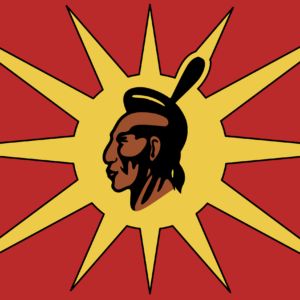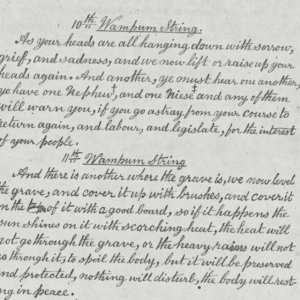
Since the launch of the tobacco industry on Six Nations, community members have seen the quality of life in our community improve. From job opportunities to companies coming through to assist local programs with financial help — tobacco on Six Nations touches all of our lives in some way, shape or form.
Now, multiple members of the tobacco industry are reporting that they are facing retaliation by national banks closing their accounts with little to no explanation, demarcating shareholders, senior staff, and leaving companies scrambling to find solutions.
This is a dangerous situation for the people of Six Nations.
If the major tobacco producers are left without banking solutions, what will that mean to Six Nations local economy? This week, we reported that Six Nations language programs turned to Grand River Enterprises for funding to carry on operations. Funding that the Elected Council could not provide to keep the program running.
The facts are that federal funding to keep the community operational is declining, in part because of the COVID-19 pandemic — for example, Six Nations OLG funding will not come through this year.
This puts the entire community in a situation where the shortfalls are going to grow. There will be more need, less money, and if the tobacco retailers and producers are beginning to have their bank accounts frozen — no promises that the local economy will be able to backfill funding shortfalls through programs, generosity or employment.
It is the beginning of a crisis. If banks can arbitrarily decide to close the personal bank accounts of those connected to Six Nations tobacco economy, even those who are paying federal excise tax, without having to provide a reason why — what is next?
It presents a very troublesome situation for those edging for an unregulated cannabis industry on the territory.
If the legal tobacco companies are being shut out of Canadian banks — how do those pushing for an unlicensed industry claim they will be able to help their allies in the cannabis industry find a banking solution?
Elected leaders must negotiate an agreement with federal and provincial officials to make a pathway to protected banking for Six Nations businesses that ensures the local economy is protected. Without elected council’s engagement on this issue — the people are left with no advocate recognized by the federal and provincial systems to drive change at the level where it is needed.
What action will our elected leaders take to protect more tobacco industry participants from being demarcated? How much authority and power does an elected system actually have if it can’t protect membership from situations like this? What if their advocacy falls on deaf ears and has no impact to drive change? Does that mean Six Nations members in the business community on any front are at risk of being similarly prohibited from holding a bank account?
Other creative solutions could be creating a Six Nations cryptocurrency. Iroquoin? Sixcoin? Let’s put a bookmark there and come back to it another time. It is a conversation worth having.
One thing is sure — without immediate and meaningful political engagement by elected council with federal officials to permanently resolve this issue — this situation could become a disaster that puts the well-being of all our families on the line.







This is an interesting discussion about business, trade and economic development. It needs to begin with having in place a body of people prepared to act like a government – elected, traditional, what ever. That body would need to be well versed on sovereignty, inherent rights and treaty obligations.
Here on the south side trade and commerce with Indigenous nations is constitutionally enshrined. America views trade and commerce between American and Indigenous business entities in the same light as trade and commerce with foreign entities.
To maximize this Indigenous governments need to be prepared to pass internal legislation authorizing the chartering and licensing of business entities within their territories. At Leech Lake we’ve created the Leech Lake Corporations Act for that purpose. Then legislation needs to be passed that harmonizes trade and financial affairs. We did that with the Leech Lake Secured Transactions Code.
My company is a Leech Lake chartered LLC headquartered in Cass Lake. To do business in Minnesota we filed as a "foreign corporation". This got us an IRS Employer Identification Number [EIN] which allows us access to American banks. We pay no taxes to either the federal or state governments, just to the Indigenous government. All of our contracts cite the Leech Lake laws and tribal court as the sole realm of jurisdiction.
All of this is doable in Canada as well IF people were prepared to work at it.